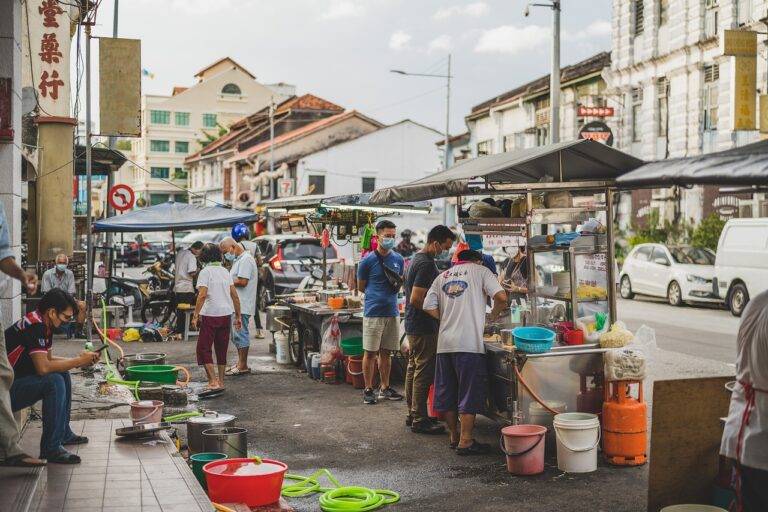Exploring the Link Between Cultural Heritage and Fragrance Rituals
bet bhai login, radheexch, lotus365: Exploring the Link Between Cultural Heritage and Fragrance Rituals
Have you ever wondered about the connection between cultural heritage and fragrance rituals? The use of scents and aromas has been intertwined with traditions and customs in various cultures throughout history. From incense burning in temples to perfumed oils used in religious ceremonies, fragrances have played a significant role in shaping cultural identities and practices.
In this article, we will delve into the fascinating world of cultural heritage and fragrance rituals. Join us as we explore the history, significance, and impact of scent traditions across different communities and regions.
The History of Fragrance Rituals
Fragrance rituals have a long and storied history, dating back thousands of years. In ancient civilizations such as Egypt, Mesopotamia, and China, aromatic substances were highly valued for their therapeutic, religious, and cosmetic properties. Essential oils derived from plants, flowers, and resins were used in religious ceremonies, funerary practices, and everyday life.
In Egypt, for example, fragrant oils and incense played a central role in religious rituals honoring the gods and preparing the deceased for the afterlife. The famous pharaohs of Egypt were buried with jars of precious oils to accompany them on their journey to the next world.
Similarly, in India, the use of incense and perfumed oils has been a longstanding tradition in Hindu and Buddhist ceremonies. The sweet-smelling smoke of incense sticks is believed to purify the air and create a sacred atmosphere during prayers and meditation.
The Significance of Fragrance Rituals
Fragrance rituals serve multiple purposes in different cultures, ranging from spiritual and ceremonial to practical and symbolic. In many traditions, scents are used to evoke specific emotions, memories, and states of mind.
For example, the burning of sage and cedar in Native American smudging ceremonies is believed to cleanse the spirit and purify the energy of a space. The scent of these sacred herbs is thought to ward off negative energies and promote healing and balance.
In Japan, the ancient art of kodo, or “listening to incense,” is a meditative practice that involves appreciating the subtle scents of different types of incense. Participants in kodo ceremonies use their senses to deepen their connection to nature and cultivate a sense of inner peace and mindfulness.
The Impact of Fragrance Rituals on Cultural Heritage
Fragrance rituals play a crucial role in preserving and perpetuating cultural heritage. By passing down scent traditions from generation to generation, communities can keep their customs and identities alive.
In many indigenous cultures, the art of making perfumes, oils, and incense is a closely guarded secret, handed down through oral traditions and hands-on training. These practices not only preserve historical knowledge but also foster a sense of pride and belonging among community members.
Moreover, fragrance rituals can serve as a bridge between different cultures and societies, helping to promote understanding and appreciation of diversity. The exchange of aromatic traditions and techniques can create bonds of friendship and respect across borders and boundaries.
Exploring the Link Between Cultural Heritage and Fragrance Rituals
As we have seen, fragrance rituals are an essential part of cultural heritage, serving as a window into the past and a pathway to the future. By understanding the history, significance, and impact of scent traditions, we can deepen our appreciation for the rich tapestry of human experience.
Whether you are drawn to the soothing aroma of incense in a Buddhist temple or the heady scent of rose petals in a Middle Eastern bazaar, take a moment to savor the sensory delights of fragrance rituals. Let the ancient wisdom and beauty of these traditions inspire you to explore new horizons and connect with your own cultural heritage.
FAQs
Q: What are some common fragrances used in cultural heritage rituals?
A: Common fragrances used in cultural heritage rituals include sandalwood, cedar, sage, lavender, rose, jasmine, and frankincense.
Q: How can I incorporate fragrance rituals into my daily life?
A: You can incorporate fragrance rituals into your daily life by using scented candles, essential oils, incense sticks, or perfumes. Experiment with different scents to find what resonates with you.
Q: Are there any health benefits associated with fragrance rituals?
A: Yes, fragrance rituals have been shown to have a variety of health benefits, including stress relief, mood enhancement, and improved concentration. However, it is essential to use scents in moderation and consult a healthcare professional if you have any sensitivities or allergies.
Q: Can fragrance rituals help me connect with my cultural heritage?
A: Yes, fragrance rituals can provide a meaningful way to connect with your cultural heritage by exploring traditional scents and practices unique to your background. Take the time to learn about the history and significance of fragrance rituals in your culture to deepen your understanding and appreciation.







